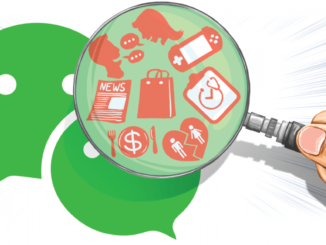When did the business commence, what are its primary fields of operation, and has it been successful?
Platforms Business are not new; we interact with them almost every day. One will imagine big buildings to host the Business, but the truth is platforms business do not have any infrastructure; it is with us on our phones and computers. Billions of people use platform business, and multiple business transactions are conducted using platform business. Platform business takes various forms; Aggregation platforms use the hub-and-spoke model to bring together different resources and enable people to interact; an example of an aggregation platform is eBay. There are many interactions between the owners of platform businesses and the people; Social platforms foster the interaction of millions of people without much interaction with the owners. Facebook and Twitter are common platforms businesses that promote people integration. Mobilization platforms facilitate interactions for longer durations. Learning platforms, for example, Udemy, are crucial to accomplish interactive learning that goes beyond individual ability.
Platform business has had a series of evolution to meet the current state. The pre-internet era was a dark period without many interactions among the people. During this period, there was some platform business called matchmakers, a social interaction used in China to find marriage partners (de Kloet et al., 2019). When the internet was adopted, new platform businesses emerged. eBay and Craigslist were adopted and used in the 1990s. These inspired more research and innovations to create more platform businesses such as Myspace in the 2000s. Platform business began to emerge in the 21st century and posed stiff competition that led to the collapse of some models such as Nokia and BlackBerry. Bigger platforms businesses such as Amazon and Netflix grew despite the challenges and are still in existence today.
Platform business has multiple primary operating fields. Technology platforms are almost invisible to the participants because they do not connect both sides of the market; technology platform businesses sell services to the developers and not directly to consumers, for example, Amazon, Microsoft, and Twilio. Computing platforms are models that enable the user to interact with the developer’s end product. The platform, in this case, interacts and owns the user; for example, Apple, Google Android, and Microsoft Windows use an app to sell their services to the consumers. Utility platform business offers free services to the end-users. Examples of Utility Platforms are Zenefits and Google search; these platform businesses do not attract the users, but instead, users attract the Business. Interaction platform business is broad and has many users who attract other users (Reillier & Reillier, 2017). Examples of Interaction platforms are Facebook, Bitcoin, and Twitter; these platforms have developers who connect multiple users by assigning them identities. Interactions in this platform take the form of messaging, video calling, and money transfers. Marketplaces are a form of platform business that links buyers and sellers while developers stay neutral and facilitate the network. Examples of Marketplaces are eBay, Amazon, and Upwork. The identity of buyers and sellers is not crucial, but much emphasis is on the product name and features. The on-demand platform business includes Uber services. The platform controls the entire process, and the buyer has no control of the quality of service and operation. Content crowdsourcing enables consumers to interact with the content rather than developers. An example is YouTube, where content creators upload the content, and buyers interact with the content directly.
How does it make money from its activities?
Platform business uses a variety of ways to make money. The sale of services is the source of funds for various platforms. Technology platforms get cash by selling their services to the developers, which does not directly involve the user. Creation and sale of Apps provide money to the platform business; for example, computing platforms create apps to interact with the user through downloads and upgrades. Commissions, advertisements, and anonymized data provide monetary value to the utility platforms (Reillier & Reillier, 2017). Utility platforms offer free services to the primary users but attract companies and other businesses to market themselves through ads paid for. Interactive networks create a pool of users who reward the platform in terms of airtime and data bundle purchase and use. Marketplaces attract sellers and buyers to sell and buy products, and a fee charged on the sellers finances the platform business. Direct money transfers are a source of finance to the platform business. The on-demand service providers sell their services to the consumers directly through money transfers. Content crowdsourcing platforms such as YouTube obtain money in exchange for content through likes, downloads, and views directly charged on the data usage.
Platform business is thriving; the Business is ranked the most profitable and resourceful in connecting people. The platform has made the world a small village. Various products, both goods, and services have been exchanged via platform business. Education is now possible at the comfort and convenience of the user. The people obtain real-life motivation through interactive platforms and resourceful libraries in the utility platforms (John, 2018). Cultural interaction and integration have been made possible by the platform where people from all walks of life interact. Content creation has sparked the use of talents for financial rewards and the sake of marketing. Many lives have been empowered through monetary benefits in exchange for goods, services, and content.
Concerns?
The lucrative platform business has faced many concerns from different people. The high costs of data have been raised by different users where the platform consumes many data bundles from the users. A problem on ethical consideration in interactive platforms has not yet gotten a solution. People interact in these interactive platforms using abusive languages and peddle tribalistic sentiments that threaten peaceful coexistence (Van, Poel & de Waal, 2018). The technological advancement is a threat to the existing Platforms; new entrants are likely to bring innovation that may negatively skew the industry.
Platform businesses need to write and edit content to display instructions and give information based on the seller and buyer searches. The content used in platform business should be concise and logical; hence content creators must do thorough research and edit the content to suit the readers. Information should be authentic, and the use of information from other scholars and articles is appropriately cited. Search engine optimization (SEO) promotes the content and makes it easy to access while searching; the SEO consistently ranks credible content. Information should be relevant and stick to the topic while incorporating technical skills such as appropriate software use. Chunking is used when writing web pages to group information and make it easy to remember. Numbers are chunked to create more significant numbers that are easy to memorize.
Platform businesses have social, political, economic, and cultural implications. Political leaders have used interactive platforms to market their manifestos and convince voters to vote for them. Political actions continually affect the platform business through the decision-making and policies that affect the platform operations, for instance, licensing and taxation (Mansell, Robin & Steinmueller, 2020). Platform business boosts Companies to attain their goals through advertising using the platform business. Tax and revenues grow the national income and give the government money to reinvest in other sectors. People from different cultures interact through the platform business to share their cultural beliefs. The content in various platforms offers education about cultural integration, diversity, and the need to be socially competent.
Conclusion
In conclusion, the Platform business is dynamic and is within us; we interact with the platforms daily unknowingly or knowingly. The platforms evolved over time and still are experiencing technological advancement where new models may arise in the future. Platforms take different forms, each with unique purposes. Technological platforms sell their services to the developers and do not interact with the buyers. Utility platforms offer free informational services and charge for the ads that are displayed over their websites. Computation platforms develop apps that interact with the users directly. Interactive platforms are common and involve social media that allow social interactions and diversify the people’s culture. It is pertinent to understand and be able to write the platform content for easy reading and understanding. The SEO procedures are crucial to producing quality content that the Google sites will rank. Chunking is used to compress huge information into easy-to-read sentences. Platform businesses obtain money in various forms; the funds can be paid directly, gotten through data bundles, commissions, money transfers, and advertisements.

References
Mansell, Robin, and Steinmueller, W. Edward (2020), Advanced introduction to platform economics. Cheltenham, Edward Elgar, pp. 35-54
de Kloet, J., Poel, T., Guohua, Z., & YIU Fai, C. (2019). The platformization of Chinese society: Infrastructure, governance, and practice. Chinese Journal of communication: The platformization of Chinese society, 12(3), 249-256.
Van Dijck, J., Poel, T. & de waal, M. (2018) The platform society. Oxford: Oxford University Press, pp. 5-32 (‘The platform society is contested concept’).
John, Nicholas A. (2018) Sharing Economies. In the Age of sharing. Cambridge: polity. pp 69-97
Reillier, L. C., & Reillier, B. (2017). Platform strategy: How to unlock the power of communities and networks to grow your business. Routledge.



